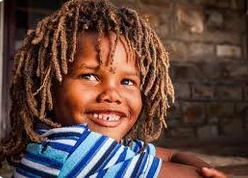
support@yorubalibrary.com
+2348073529208, 07038599574

In Yoruba culture, the birth of twins (Èjìre) is a great event, a double portion of divine blessing. But what of the child who follows this extraordinary act? This child has a unique and powerful position, stepping into the world after the celebrated duo. This child is named Ìdòwú, a name that signifies far more than just birth order. Ìdòwú is the inheritor of the throne, the child who carries the continuity of the lineage, embodying a distinct and crucial destiny all their own.
The Meaning and Significance of the Name Ìdòwú
The name Ìdòwú is significant and is derived from the phrase. On one level, it simply denotes the child that follows the twins in the mother's womb. However, on a much spiritual level, it signifies a child of replacement and succession. In traditional times, due to higher rates of infant mortality, the Ìdòwú child was seen as a sacred replacement, ensuring the family's lineage continued strong after the twins. They are the inheritor, the one who steps forward to receive the mantle and ensure the family's legacy endures. Their birth completes a sacred cycle.
Common Traits and Characteristics of an Ìdòwú Child
The role of the successor shapes the perceived character and inherent strengths of an Ìdòwú child.
• Inherently Adaptable and Resilient:
Born into a family dynamic already defined by the twins, the Ìdòwú child naturally learns to be adaptable and resilient. They often develop a strong, independent spirit from a young age.
• A Mediator and Diplomat:
Positioned after the twin pair, the Ìdòwú child can often become a natural peacemaker and mediator, both within the family structure and in their broader social circles. They possess a unique ability to see multiple perspectives.
• A Strong Individual Identity:
While their identity is linked to the twins, there is a powerful drive in an Ìdòwú child to be recognized for their own unique qualities and achievements, to step out of the shadow and claim their own individual throne.
Guidance for Parenting an Ìdòwú Child
Raising an Ìdòwú child involves recognizing their unique position and nurturing their individual strength.
1. Celebrate Their Unique Arrival:
Teach them the story of their name as one of strength and importance—the child who completed the family. Frame it as a narrative of succession, not of living in a shadow.
2. Affirm Their Individuality:
Consciously celebrate their accomplishments separately from those of the twins (if applicable). Ensure they have their own goals, their own stories, and their own recognized place within the family unit.
3. Nurture Their Diplomatic Skills:
Encourage their natural tendency towards mediation. This can be a tremendous asset in their personal and professional lives. Validate their ability to see balance and fairness.
4. Empower Their Sense of Responsibility:
Channel their innate sense of duty into positive leadership roles. Give them responsibilities that make them feel valued and trusted, reinforcing their role as a capable and important family member.
The Ìdòwú Child: The Crown of Continuity
The Ìdòwú is the crown that completes the royal set. If the twins are the double blessing, Ìdòwú is the blessed assurance—the promise that the family line will persevere and thrive. They are the anchor, providing stability and strength after the joyful storm of the twins' arrival. Their value is not diminished by coming after; it is defined by it, as they hold the critical role of ensuring all that came before them is preserved and carried forward.
Oriki Ìdòwú
Find below the most authentic eulogies specially made for Idowu children:
Ìdòwú ògbo abìkere létí
Ar’éjì bárin, ar’ẹ́gbọn tẹ̀lé
Ẹ̀kẹta ọmọ, Ẹṣù lẹ́yìn ìbejì
Awere dele ọpá ń léjò w’osà
Ohùn gbọ̀rọ̀ nílé ohùn gbọrọ̀ lóko
Ìdòwú tẹ̀lé ọ̀kọ̀ kò gbọdò p’olówó
Ẹ̀ṣù lẹ́yìn ìbejì
Ìdòwú kì í sẹrú ìbejì ;
Ènìà tí kò gbọ́n ni í pe Ìdòwú lẹ́rú ìbejì
Ìbí kì í ju ìbí;
Bí a ti bẹ́rú la bọ́mọ.
Conclusion:
An Ìdòwú child is a powerful evidence to continuity and individual purpose. Their name tells a story of succession and the undeniable importance of the child who follows a miracle.
Need more? Browse through our Oriki Gallery today, at zero cost.

Your baby was born with locked hair? Learn about t…

Curious about Yoruba twin names often called Ibeji…